-
Why Adults Are Choosing Invisalign
Braces have long been used to straighten the teeth of adolescents, but individuals of any age can benefit from having perfectly aligned teeth. Properly aligned teeth are essential for biting and chewing food, and for clearly pronouncing words. In some cases, braces might even improve oral wellness, such as when an adult suffers from temporomandibular joint (TMJ) disorder. For adults who live in Bel Air, a dentist is likely to recommend Invisalign.
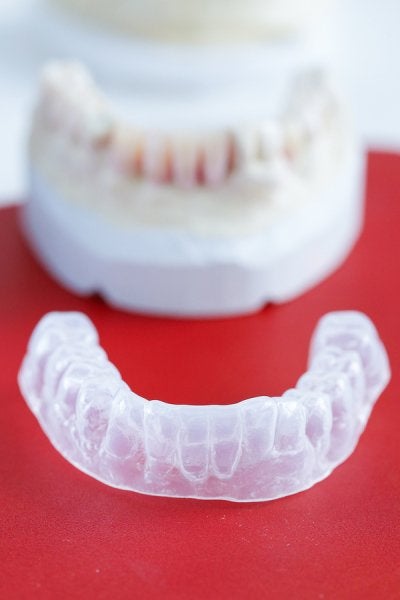
Discreet Alternative
Dentists often recommend Invisalign to their adult patients because it offers a discreet alternative to highly visible metal braces. Although straight teeth are important at any age, the appearance of braces does not lend itself to a professional image. Adults who are concerned about how they look as they go about their day at the office may be more likely to choose Invisalign. Instead of metal brackets, Invisalign gently straightens the teeth with a series of custom-made aligners made of clear plastic . Since these aligners are virtually invisible, no one needs to know when a person is having his or her teeth straightened.
Convenient Aligners
Beyond appearance, Invisalign offers remarkable advantages over metal braces. The aligners are a convenient option because they are easily removable and replaceable. Dental patients simply pop out the aligners when it’s time for a meal. After eating and brushing their teeth, patients can easily snap the aligners back into place. The removable nature of the Invisalign aligners means that there are no dietary restrictions; patients can feel free to crunch on an apple, bite on celery, or chew sugarless gum.
Optimum Oral Health
Another benefit of the removable aligners is that they allow patients to maintain their normal oral health routines without having to fuss with proxabrushes or other special dental care equipment. The teeth can be brushed and flossed as usual. The aligners are easy to clean; a gentle scrub with toothpaste is all that’s needed to refresh them. Because adults can easily maintain their oral hygiene during treatment, there is no increased risk of tooth decay.
-
What Happens During a Root Canal?
If you experience tooth pain and visit an emergency dentist near Bel Air, MD, it’s possible that your dentist will determine that the nerve of your tooth has been damaged by an infection or decay. In these situations, a root canal is indicated. A root canal can save your natural tooth and prevent the need for a tooth extraction. To perform this common dental procedure, your dentist will thoroughly numb the area and create an access opening on the top of the affected tooth. Then, the dentist inserts a series of root canal files into the opening to remove the infected pulp and other damaged tissues. Other dental instruments may be needed to address tooth decay, if this problem is also present.
Once all of the damaged material has been removed from the tooth, the dentist seals the hole with a temporary or permanent filling. In the same office visit, we will permanently seal the tooth if you received a temporary filling. Your dentist will also permanently affix a dental crown on top of the tooth. The dental crown looks just like a natural tooth; it protects the natural tooth from trauma.
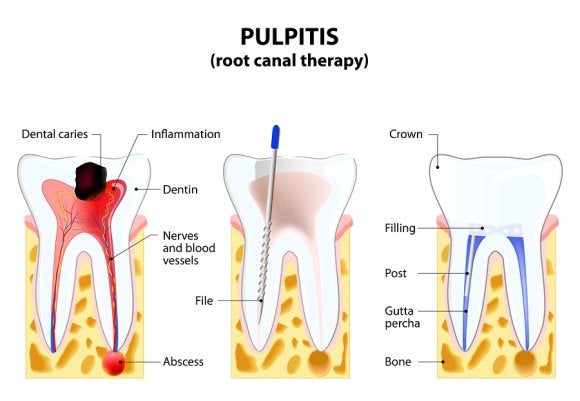
-
What to Do In a Dental Emergency
It’s common knowledge that it’s important to see a dentist every six months for an exam and professional cleaning, but there are some situations that call for an additional visit to a dental clinic in Bel Air, MD. You should see an emergency dentist if you experience oral injuries, significant dental pain, or tooth trauma such as a dislodged tooth. While you’re on your way to the emergency dentist’s office, there are some steps you can take to ease your discomfort.

Toothache
Minor toothaches might not always require emergency dental care. Sometimes, they’re caused by food debris trapped between the teeth. Swish warm water around your mouth and use dental floss to gently clean between your teeth. Never apply aspirin to the gum tissues; instead, you can apply a cold compress to the exterior of your mouth. If your toothache doesn’t go away, you should call an emergency dentist.
Chipped or Cracked Tooth
Chipped and cracked teeth are not an uncommon problem. If possible, save the chipped pieces of the tooth. Rinse your mouth with warm water. If the gums are bleeding, apply a piece of sterile gauze for about 10 minutes to stop the bleeding. Then, visit an emergency dental clinic and be sure to bring the chipped pieces of your tooth. While you’re on your way there, you can apply a cold compress to the exterior of your mouth to relieve your discomfort.
Partially Dislodged Tooth
A cold compress can also relieve the pain of a partially dislodged tooth. If need be, you can take an over-the-counter pain reliever. These are only temporary measures; see an emergency dentist as soon as possible.
Avulsed Tooth
An avulsed tooth is one that has been completely knocked out of the mouth. It might still be possible to save a knocked-out tooth if you get to the emergency dental clinic in time. Pick up the tooth, holding it by the crown. Rinse it with water if it’s dirty, but do not scrub it. It may be possible to reinsert the tooth into its socket; be sure it faces the correct way. If not, place the tooth in a cup and cover the tooth in milk. If you do not have any milk, add water and a pinch of salt. See your dentist within an hour.
-
Aging and Oral Health
Good dental care is important at every age. As you grow older, your dentist might alert you to some problems that you may be at risk of. Aging can bring about changes in the dentin just underneath the enamel. This can cause your teeth to appear dull or darker. A quick trip to a dental clinic near Bel Air, MD , can easily correct this problem. Consider talking to your dentist about teeth whitening or porcelain veneers.
Watch this brief video for some helpful tips on taking good care of your teeth as you enjoy your golden years. This dentist recommends chewing sugarless gum to stimulate the release of saliva if you experience dry mouth due to certain medications. She also recommends making regular dental check-ups, brushing and flossing thoroughly every day, and limiting snacking between meals.
-
Spotting the Signs of Gum Disease
It’s important to visit your dentist in Bel Air, MD, regularly for routine dental care, including professional dental cleanings and exams. This will give your dentist the opportunity to catch early warning signs of dental problems, such as early warning signs of gum disease . Here is a guide to spotting the signs of gum disease, so that you can quickly make an appointment at your dental clinic if necessary.
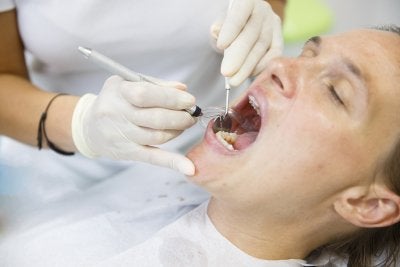
Recognizing Gingivitis, the First Stage of Gum Disease
Gingivitis is the first stage of gum disease, but its progression can be slowed or stopped with proper dental care. The warning signs of gingivitis include mild to moderate inflammation of the gums. Your gums may be red, swollen, and may bleed easily. If your dentist does not quickly treat gingivitis, it can progress to more serious stages of gum disease. Your dentist will determine the most appropriate dental care necessary for your symptoms. This may include daily brushing and flossing, using specialized prescription dental care products, and visiting your dentist regularly for dental cleanings.
More Severe Symptoms of Periodontal Disease, Also Known as Gum Disease
Without regular, daily dental care, gingivitis may progress to more serious stages of periodontal disease, which is also called gum disease. Periodontal disease causes the gums to begin to recede or pull away from the teeth. This creates pockets in the gums that can become infected with bacteria. As the infections spreads, your risk of tooth loss greatly increases. You cannot treat periodontal disease at home, but instead must visit a dentist for specialized dental care.
Signs of Advanced Periodontitis
If gum disease is untreated, it will progress to a condition known as advanced periodontitis. In this stage of gum disease, your dentist may have to perform tooth extractions to remove damaged or diseased teeth. Your tooth will then have to be replaced with a dental implant or dental bridge. Your dentist will first attempt to treat advanced periodontitis using a non-surgical dental care method known as scaling and root planing. This is basically a very intense, thorough dental cleaning during which the dentist removes plaque, tartar, bacteria, and infection from your teeth and gums. If this is ineffective, your dentist will recommend surgical dental care.
-
Missing Teeth and Your Health
If you are missing teeth due to tooth decay, trauma, or a tooth extraction near Bel Air, MD, your dentist will recommend replacing your missing teeth with prosthetics . There are a few cosmetic dentistry options for replacing missing teeth, including dentures, dental bridges, and dental implants. If you don’t seek restorative or cosmetic dental care, you may develop serious complications and health problems.
Watch this video from the American Dental Association to learn more about missing teeth and your health. If your dentist doesn’t replace your missing teeth with cosmetic dentistry restorations, you may suffer from shifting or crooked teeth, jawbone loss, facial deformity, and difficulty eating and speaking. When dentures or dental bridges are anchored to your jawbone using dental implants, you can reduce your risk of health problems. You can also restore your smile, and ensure that you can comfortably eat, speak, and maintain your dental care routine.
-
Save Your Tooth with a Root Canal
If you have a severely infected tooth, you may need to visit an emergency dentist in Bel Air, MD. An emergency dentist can attempt to save your tooth via a root canal procedure , rather than resorting to a tooth extraction. Root canal procedures are a safe, effective method of emergency dental care, and can prevent your infection from spreading while preserving the integrity of your infected tooth.
Prior to your root canal, your dentist will administer anesthesia. He may also give you a mild sedative to help you relax during the procedure. This will ensure that you remain comfortable and pain free throughout your dental care procedure. Once the anesthesia is in effect, your dentist will drill a small access hole into your infected tooth. He will use special dental tools to remove diseased or infected dental pulp, tooth nerve, and tissue from your tooth.
He will then fill the tooth cavity with medication to completely eradicate your infection. Then, he will seal the access hole with dental putty to prevent bacteria from entering. He may place a dental crown on the tooth to preserve its structural integrity and prevent a broken or chipped tooth.
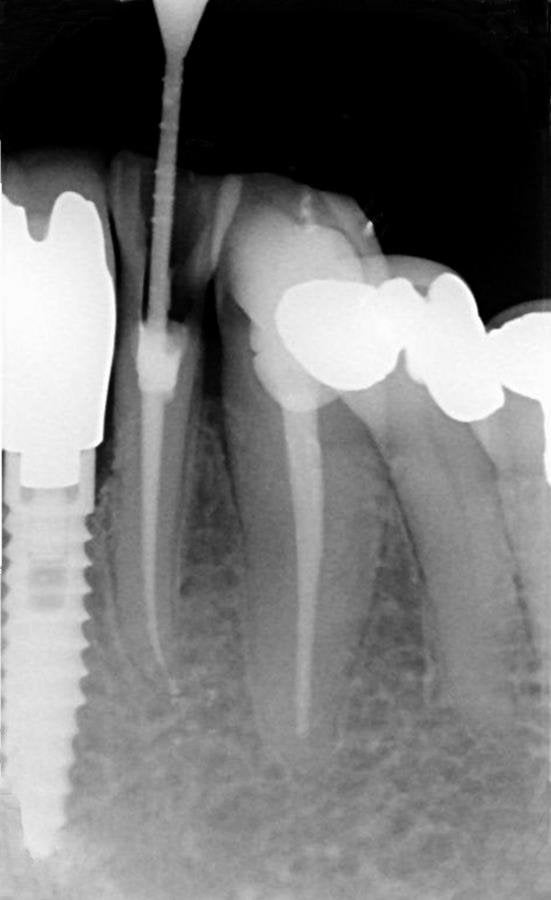
-
Are Dental Implants Right for You?
Your dentist may recommend that you get dental implants near Bel Air, MD if you have undergone a tooth extraction, have a severely chipped tooth, or are missing one or more teeth. Dental implants are a safe, effective cosmetic dentistry alternative to dentures and dental bridges. Here is a look at some of the reasons that you may want to discuss dental implants with your dentist.
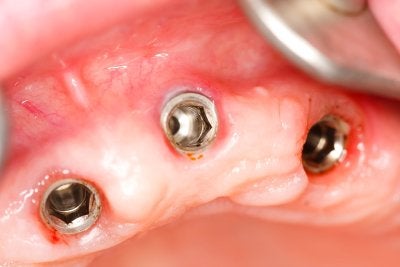
You are missing one or more teeth.
Your dentist can replace one or more missing teeth via a relatively simple cosmetic dentistry procedure using dental implants. A dental implant is a prosthetic tooth that is attached to a titanium rod that is implanted directly into your jawbone. The prosthetic tooth can be customized to match the size, shape, and color of your remaining natural teeth. This means that it looks almost unnoticeable when you talk and smile.
You are looking for an alternative to dentures or a dental bridge
Dentures and dental bridges are other cosmetic dentistry options that can be used to repair a chipped tooth or replace missing teeth. If you are missing all of your teeth, your dentist will recommend that you receive dentures. However, if you are only missing one or two teeth, dental implants are a better cosmetic dentistry solution. Because dental implants are anchored to the jawbone, they prevent many dental problems associated with missing teeth. Dental implants will ensure that you don’t suffer from jawbone loss, shifting teeth, or facial deformity. Dentures are not anchored to the jawbone, and thus do not prevent these problems.
You are in good physical health and committed to future dental care.
Your dentist will determine if you are a good candidate for dental implants. To be a good candidate, you must be committed to maintaining your future dental care. You will need to brush, floss, and use mouthwash at home. You must also visit your dental clinic at least every six months for dental cleanings and exams. You may not be a good candidate for dental implants if you have severe bone loss or advanced gum disease, smoke regularly, or have certain existing medical conditions.
-
The Uses of Dental Crowns
Do you need dental crowns in Bel Air, MD ? Dental crowns help restore teeth that cannot undergo other common forms of dental work, such as fillings. Crowns act as a protective layer around the tooth, strengthening its structure and upholding its original form. There are several different types of crowns available, including those made from a tooth-colored porcelain material. Talk to your dentist about getting a customized porcelain crown made for your tooth if you dislike the look of gold crowns.
Your dentist may recommend that you get a dental crown for several reasons. Typically, dental crowns are recommended for those who have a decayed tooth with fragmented or large fillings. Dental crowns are also used on teeth that have root canals. Finally, customized porcelain dental crowns may be used for cosmetic purposes.
The procedure for getting a dental crown will usually involve two appointments at a dental clinic. The first appointment centers around making accurate impressions of your tooth in order to create a custom crown that will fit perfectly over it. At your second appointment, your dentist will mount the permanent crown onto your tooth.
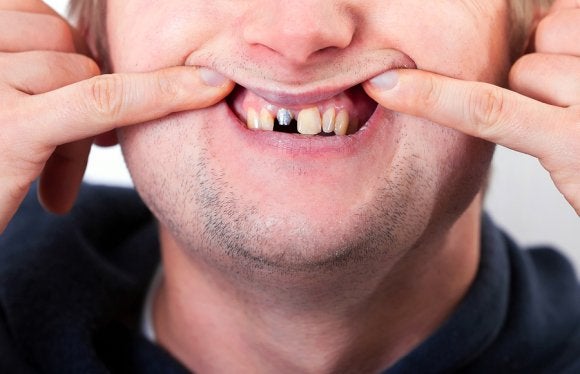
-
Choosing a Mouth-Healthy Diet
One of the most important things you can do to maintain proper dental care in Bel Air, MD is to eat nutritious foods that improve your oral health rather than detract from it. Your dentist has probably stressed the importance of maintaining a proper oral hygiene routine to avoid tooth decay and the need for tooth extraction. Your meal and snack choices are just as important as brushing and flossing when it comes to maintaining oral health. Keep reading to learn more about choosing foods that are healthy for your whole body—including your teeth.
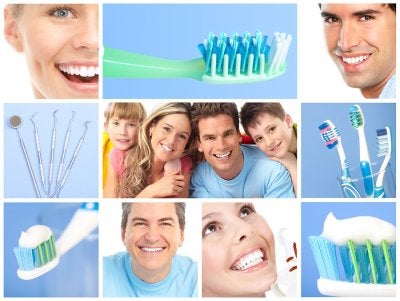
The Relationship between Sugar and Tooth Decay
Tooth decay occurs when the plaque that builds up around your teeth and mouth comes into contact with sugar from the foods that you eat. This interaction can cause acid to eat away at the teeth, forming harmful cavities. Eating a non-nutritious diet high in sugary foods can even affect your immune system, making it more difficult for your body to fight off infection and leading to oral health conditions such as gingivitis, advanced periodontal disease, and eventual tooth loss. Fortunately, tooth decay is preventable. In addition to a good dental care regimen including brushing your teeth with a fluoride toothpaste twice daily, flossing every day, and making regular visits to a dentist, you should eat a healthy diet and avoid added sugars in order to help keep your teeth and gums clean and healthy.
How to Choose Nutritious Foods
In order to choose nutritious foods for a healthy diet, be sure to read the nutrition facts and ingredients list for all processed foods that you purchase. This will help you avoid choosing products that are high in hidden sugars and that may not provide you with many vitamins or minerals. The most obvious culprits are candy, cookies, and pastries. Don’t forget to take into account what you drink as well. Soft drinks and juices typically contain an abundance of added sugar, and even some dairy products contain sugars that can cause tooth decay if they are consumed too often.
categories
- Uncategorized
- General Dentistry
- Toothache
- Emergency Dentistry
- Family Dentistry
- Receding Gums
- Cosmetic Dentistry
- Veneers
- Gum Disease
- Gingivitis
- Dental Crowns
- Orthodontics
- Dental Implants
- Root Canal
- Wisdom Teeth
- Teeth Whitening
- Your Smile
- Composite Fillings
- Lumineers
- Dentures
- Invisalign
- BrightSmile
- Dental Bridge
- Abscessed Tooth
- Sealants
